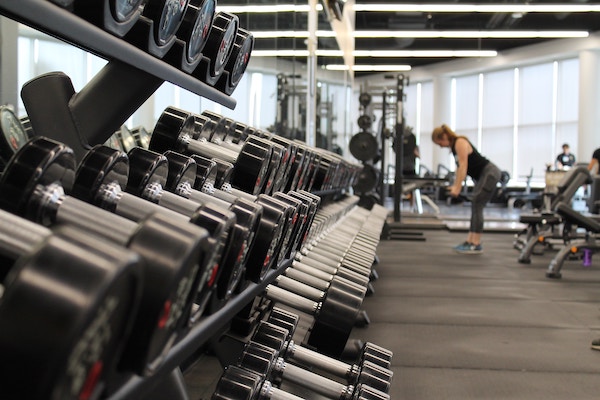The Link Between Better Sleep and Improved Productivity at Work
Achieving Goals, Career Enrichment, Presence, Productivity, Reducing Stress

Approximately 45 percent of American adults slept poorly in the last week. Without the recommended seven hours of sleep, reasoning, emotional stability, and work productivity take a serious hit. Even those who got the right quantity of sleep may not have gotten the quality necessary for the body to be fully rested. Better sleep opens the door to better efficiency, productivity, and work satisfaction, including improved professional relationships.
More Sleep = Less Stress
Sleep deprivation, that’s anytime sleep hours drop below seven hours, makes anything that triggers a stress response more difficult to handle. Something as simple as an unexpected phone call can be enough to cause stress, anger, or irritability when running low on sleep.
There are physiological reasons behind the emotional changes that accompany sleep deprivation. When you don’t get enough rest, the brain’s emotional response center becomes highly sensitive to negative thoughts, emotions, and situations. The response to negative stimulation increases in this part of the brain when you’re tired.
Normally, when you’ve had enough sleep, the brain’s logical center regulates these emotional responses. However, when you’re sleep-deprived, the logical part of the brain becomes less active. That leaves people more susceptible to irritability, aggression, and other intense negative emotions.
Getting more (and better) sleep equips you to stay calm and cool in the workplace. That stability allows you to address customer and client concerns with your full mental and emotional reasoning in place. The ability to handle workplace stress can also enhance your relationships with co-workers. Arguments, disagreements, and misunderstandings are less likely and/or can be resolved more quickly when everyone gets the rest they need.

Less Stress = Better Work Performance
Anything that can help you reign in your stress will benefit you both in and out of the workplace. A 2013 American study that questioned doctors about their patients’ well-being estimated that 60 to 80 percent of patients reported a stress-related component that affected their health. Forty-four percent of patients reported an increase in stress over the prior five years. Prolonged or chronic stress leads to a number of health issues, including increased inflammation that can compromise the immune system and contribute to anxiety and depression.
More Sleep = Better Health
We’ve briefly mentioned the mental health benefits of more sleep but your physical health relies on sleep too. The human body uses sleep time to rebuild the immune system. It makes and redistributes antibodies so they’re ready to tackle any bacteria and viruses that you encounter during the day. The more you sleep, the better you will feel the next day. Overall, better sleep means less sick time, fewer medical bills, and more productivity at work.
Less Stress + Better Healthier = More Efficient
Many people don’t realize the effects that sleep deprivation takes on their bodies until they’ve started to get better sleep. More than the emotions and immune system are get rejuvenated while you’re unconscious. The brain’s cleaning system, called the glymphatic system, is 90 percent more active while you sleep versus when you’re awake.
This system flushes the tiny interstitial spaces in the brain with spinal fluid to remove the waste proteins that buildup during the day. Lack of sleep can leave many of those toxins in place, slowing down brain signals with all the clutter.
Sleep deprivation also affects reflexes and physical performance. A study done among college-level basketball players found that increasing sleep time decreased sprint times and improved shooting percentages. You may not be shooting baskets or sprinting down a court, but you need your physical and mental reflexes to quickly respond to unexpected situations. Whether it’s an unhappy customer or another driver while you’re out for a delivery, sleep will keep you centered and focused when you need your full mental and physical abilities.

How To Improve Your Sleep:
Update Your Bed
Everything about your bed affects your sleep, including the mattress, pillows, and bedding. If you don’t know the last time you replaced your pillows or mattress, it’s probably time for a change. Mattresses should be replaced approximately every 8 years and pillows about every year. Make sure your mattress truly offers you the support you need. If you wake up achy and sore, an old mattress could be the culprit.
Side sleepers generally need softer mattresses to cushion and relieve pressure at the shoulder and hips. Stomach sleepers, on the other hand, need firmer support to prevent their hips from sinking into the mattress and putting too much pressure on the lower back. Back sleepers have the easiest time finding a mattress since they maintain a relatively neutral spinal position throughout the night. However, your weight and personal preferences also affect how the mattress feels to you. Try out a few models and look for one that meets your specific needs.
Change Up the Bedroom
As much as your bed influences your sleep, it’s not the only thing in the bedroom that can make or break your sleep cycle. The body needs complete darkness for sleep hormones to flow as needed. Blackout curtains, heavy drapes, blinds, and shades to keep sun and street light out at night can help you fall asleep faster and stay asleep longer.
If you live on a noisy street, a white noise app or machine to drown out the sound makes a huge difference. Finally, try to keep the room temperature between 60 to 68 degrees. Your body temperature drops at night and a lower room temperature helps the body maintain and regulate that change.

Put Work Away After Hours
There is a reason that labor unions fought tooth-and-nail for a 40-hour workweek. Once you hit 40 hours for the week, your productivity goes down. You only have so much to give and knowing those boundaries can actually make you more efficient.
It’s also not healthy for you to be focused on work all the time. With so many remote work options, it can be easy to get caught up in the loop of checking and answering one more email. However, one hour turns into two then three after you were supposed to have clocked out. Find somewhere out of the way to put your work devices when you’re off the clock and avoid bringing work home if you can.
Build Consistency Into Your Routine
Your body functions best on a consistent, predictable routine. That’s because it uses one of the most predictable of all routines, the rising and setting of the sun, to control your sleep cycle.
Special photoreceptors in the eyes send signals directly to the brain, which then suppresses sleep hormones. As light fades, sleep hormones get prepped and released. However, your body adjusts the release of sleep hormones based on your behavior. For example, it will release them at 9 pm if that’s when you most often go to bed. If you generally get in bed at 11 pm, the brain will adjust accordingly.
Going to bed and waking up at the same time every day strengthens your sleep cycle and your response to sleep hormones. Try to keep the same sleep schedule on weekdays and weekends so you don’t get behind on sleep.
Conclusion: Sleep is Key to Productivity
To give your best, you need to sleep. You’ll feel and do better at any activity you undertake when you’re body is rested and your mind clear. You’ll produce better work and have your full mental, physical, and emotional strength when you find yourself in difficult situations. So, get to bed on time and make sure sleep is at the top of your priority list.


